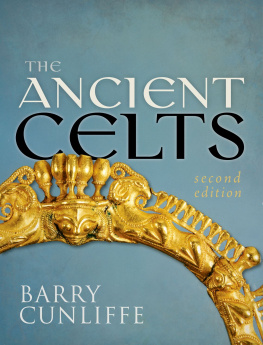PUBLISHERS' NOTE
The essential qualifications for an author of such a work as the present are an actual acquaintance with the persons mentioned, an intimate knowledge of their daily lives, and a personal familiarity with the scenes described.
The author of William II. and Francis-Joseph, sheltered under the nom de plume of Marquise de Fontenoy, is a lady of distinguished birth and title. Her work consists largely of personal reminiscences, and descriptions of events with which she is perfectly familiar; a sort of panoramic view of the characteristic happenings and striking features of court life, such as will best give a true picture of persons and their conduct.
There has been no attempt to trammel the subject,which embraces religious, official, social and domestic life,by following a strictly sequential form in the narrative, but the writer's aim has been to present her facts in a familiar way, impressing them with characteristic naturalness and lifelike reality.
To this task the author has brought the habits of a watchful observer, the candor of a conscientious narrator, and the refinement of a writer who respects her subject. Hence she presents a true, vivid and interesting picture of court life in Germany and Austria. If such merely sensational, and too often fictitious, unsavory tales as crowd the so-called court narratives expressly concocted for the "society" columns of the periodical press are not the most prominent features of the present work, it is because they receive only a truthful recognition and place in its pages.
CHAPTER I
"If only Emperor William would be true to himselfbe natural, in fact!" exclaimed Count S, a Prussian nobleman, high in the diplomatic service of his country, with whom I was discussing the German Emperor a year or so ago. Then my friend, who had, a short time previously, been brought into frequent personal contact with his sovereign, in connection with his official duties, went on to say:
"There are really two distinct characters, one might almost say two personalities, in the kaiser. When he is himself he is the most charming companion that it is possible to conceive. His manners are as genial and as winning as those of his father and grandfather, both of whom he surpasses in brilliancy of intellect, and in quickness of repartee, as well as in a keen sense of humor. He gives one the impression of possessing a heart full of the most generous impulses,aye, of a generosity carried even to excess, and this, together with a species of indescribable magnetism which appears to radiate from him in these moments, contributes to render him a most sympathetic man."
"But," interposed an Englishman who was present, "that is not how he is portrayed to the outer world. Nor is that the impression which he made upon me and upon others when he was at Cowes."
"That is precisely why I deplore so much that the emperor should fail to appear in his true colors," continued Count S. "All the qualities which I have just now ascribed to him are too often concealed beneath a mantle of reserve, self-consciousness, nay, even pose. During my recent interviews with his majesty, whenever we happened to be alone, he would show himself in the light which I have just described to you. But let a third person appear upon the scenebe it even a mere servantat once his entire manner would change. The magnetic current so pleasantly established between us would be cut through, his eyes would lose their kindly, friendly light, and become hard, his attitude self-conscious and constrained, the very tone of his speech sharp, abrupt, commanding, I would almost say arrogant. In fact he would give one the impression that he was playing a rlethe rle of emperorthat he was, in one word, posing, even if it were only for the benefit of the menial who had interrupted us. But when the intruder had vanished, William would, like a flash, become his own charming self again. That is what made me exclaim just now, 'if only the kaiser would be true to himself!be natural, in fact.'"
"I fully agree with you, my dear S," I remarked, after a short pause. "If the emperor has remained anything like what he was prior to his ascension to the throne, your estimate of his character is correct." And I went on to relate a little incident which occurred on the occasion of my first meeting with the emperor many years ago.
This meeting took place on that particular spot where the empires of Germany, Austria, and Russia may be said to meet, the frontier guards of each of those three nations being within hail of one another. The great autumnal military manoeuvres were in progress, and a merry party, including a number of ladies, were riding home from the mimic battlefield. We passed through a narrow lane, bordered on each side by groups of stunted willows and birch trees, under the sparse shadow of which nestled a few cottages painted in blue, pink, or yellow, in true Polish fashion. Suddenly our progress was arrested by terrifying screams proceeding from one of these hovels. Several of us were out of our saddles in an instant and rushed in at the low door.
Before the hearth, where a huge peat-fire was burning, stood a young peasant woman, her face distorted with agonized grief, and holding in her arms a bundle of blackened rags. We found that her baby had fallen into the glowing embers, while she herself was occupied out of doors, and the poor mite was so badly burned that there seemed but little hope of its ever reviving from its state of almost complete coma. We were all busying ourselves eagerly about the child and its distraught mother, when raising my eyes from the palpitating form of the child, I caught sight of "Prince William," as the kaiser was then called, standing near the door, apparently quite undisturbed and unmoved by this tragedy in lowly life. It even seemed to me in the dim light as if he were smiling derisively at our efforts to relieve the sufferings of the little one, and to soothe the grief of its mother. But my indignation vanished quickly when a slanting ray of the setting sun, piercing through the grime of the little window, revealed the presence on his cheek of two very large and bona-fide tears, which had welled up in his eyes, to which the lad was endeavoring to impart an expression of callous indifference; and when at last we left the hut to seek a doctor for the tiny sufferer it was Prince William's own military coat, none too new, and even, to say the truth, much worn, that remained as an additional coverlet upon the roughly-hewn wooden cot, over which the sobbing mother was bending.
"Nobody," I added, "will, therefore, make me believe that Emperor William has not got a very soft spot in his heart, and that beneath the mannerisms which he considers it necessary to affect in order to maintain the dignity of his position as emperor,those mannerisms which have given rise to so much misapprehension about his character,there is not concealed a very kindly spirit, literally brimming over with generous impulses, which, if more widely known, would serve to render the kaiser the most popular, as he is the most interesting figure of Old World royalty."













